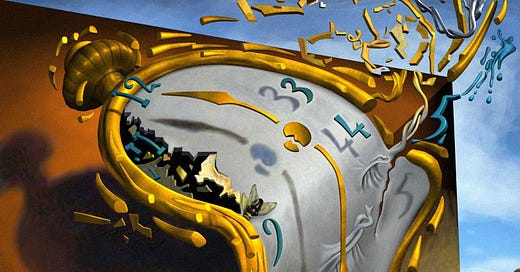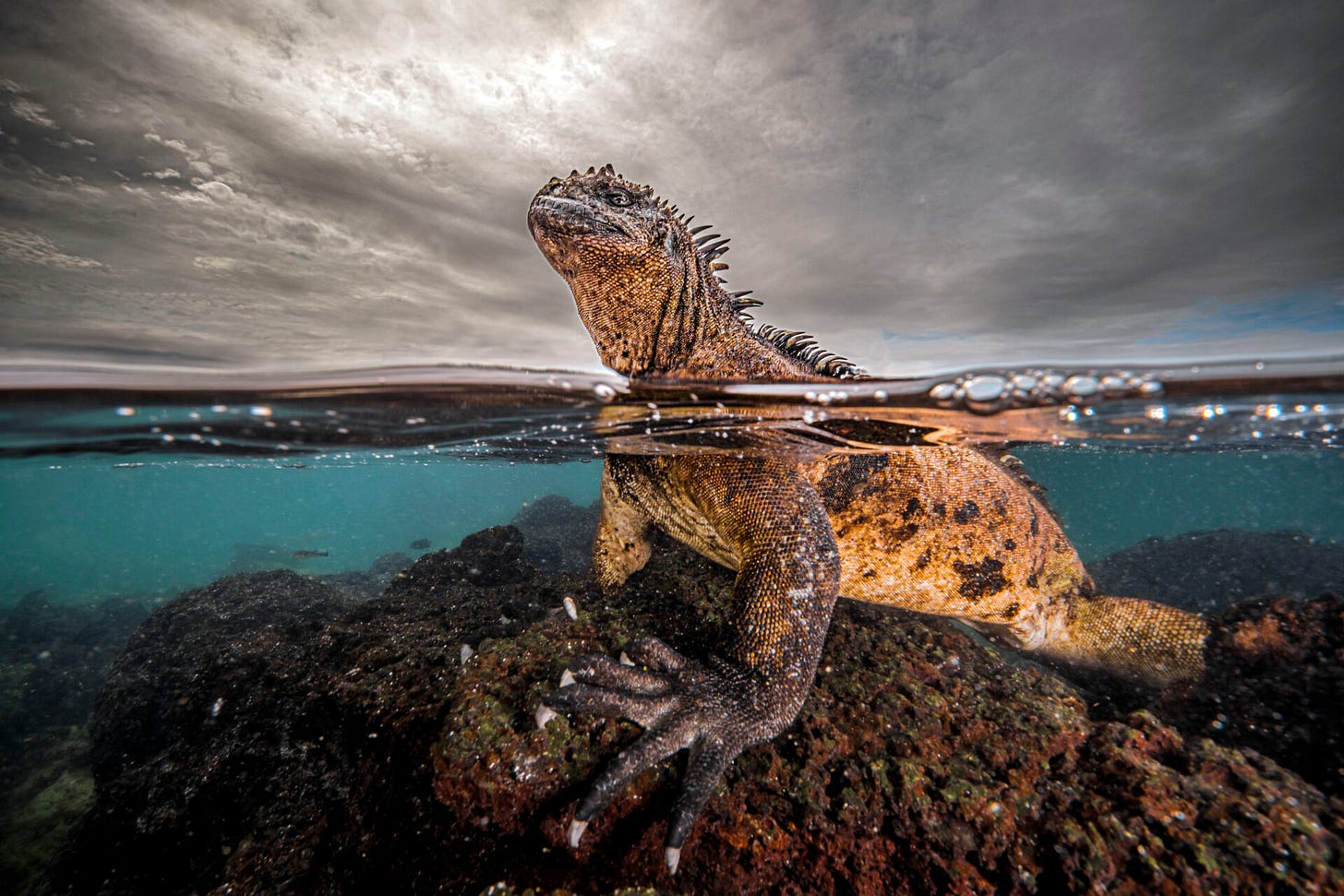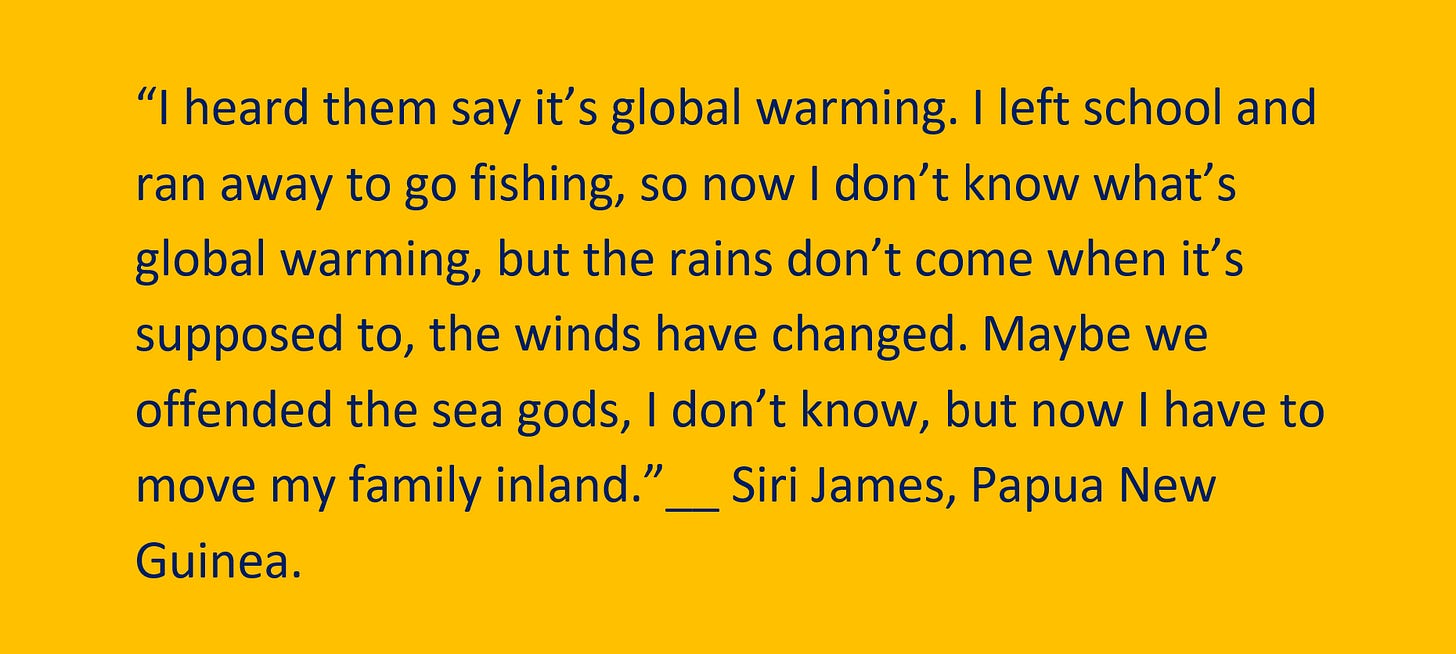Newsletter No 26 - When the Sea Gods Turn Away
Weekly thoughts, readings, musings and links from Athena Drakou, best known as The Climate Historian
This is the weekly newsletter. The Climate Historian also has a Discord and a Patreon. Post about anything you want, ask questions, whatever. 90% of the content is free, but for the remaining 10% you can subscribe here.
This week on The Climate Historian
The Testimony That Changed Everything
I wrote the second part of “Hansen vs The World: A Turning Point.” When James Hansen testified before Congress in 1988, declaring global warming a reality, his words sparked headlines—and controversy.
But the story didn’t end there. The battle escalated in 1989 when Hansen testified again.
Political battles and censorship exposed a clash between science and power. As politicians like Al Gore pushed for action, sceptics in the White House tried to silence the warnings.
You can read the first part “Hansen vs The World: A Climate Awakening” here
Writing Against Time
Last week, someone asked me why I write as if I am running out of time. I didn’t know what to say, and I hadn’t even realised it myself.
Then it hit me.
I write because I have a daughter and I want her to live in a world where she feels free, safe and able to decide what to do with her body and her future. I want her to live in a world where respect is not a privilege but a given – where men stop treating women like shit.
I write because no matter how hard I try I feel that I haven’t done enough to convince people to care more about this fragile planet we call home. I now have a grandson and I know the threats climate change will have on his future. So, no, I can’t slow down. I won’t. I’ll keep writing until the words turn into change – because time isn’t a luxury I have to spare.
Read the post here
The Unlikely Heroines of 2024 - The Women Who Refused to Disappear
Three remarkable women who, by sheer circumstance or fate, stepped into roles they never sought or anticipated. They became heroines—proving that bravery often emerges when least expected.
Read more on The Heretic Witch
Climate News
Massive waves in South America
Massive waves up to 13 feet (four meters) have struck the coasts of Ecuador and Peru, leading to the closure of numerous ports and resulting in at least one fatality. In Peru, jetties and public squares were submerged, prompting evacuations to higher ground. The Peruvian navy attributes these waves to winds off the U.S. coast and has closed 91 of its 121 ports until January 1 (Source and video)
Hottest Year in Taiwan
Taiwan’s Central Weather Administration said that this year was the hottest since records began 127 years ago, echoing unprecedented temperature highs felt around the world.
The United Nations said Monday that the outgoing year was set to be the warmest ever recorded, capping a decade of unprecedented heat.
Brazil's Amazon saw highest number of fires in 17 years
Brazil's Amazon rainforest recorded 140,328 fires in 2024—the highest number in 17 years—according to data released this week by the National Institute for Space Research. The Amazon rainforest faced an unprecedented drought in 2024, marking the most severe dry spell in at least half a century. The fires were detected by satellite imaging.
And yes, the number is correct ... 140,328 fires.
China records its hottest year on record
After Taiwan, China also recorded its hottest year on record.
China the world’s largest emitter of greenhouse gases fueling global warming, has pledged to curb its carbon footprint—aiming for peak carbon dioxide emissions by 2030 and net-zero status by 2060.
In the mean, temperatures continues to rise. The China Meteorological Administration reported that 2024 had an average national temperature of 10.92°C (51.66°F)— 1.03°C above the historical norm since records began in 1961.
Book of the Week: The Mark by Fríða Ísberg
Can empathy be evaluated in a clear, objective way, like intelligence or other measurable traits. Is it possible be reduced to a number or score or is it more subtle, existing in intangible moments that are hard to capture or define?
This question lies at the core of Fríða Ísberg’s debut novel, The Mark, exposing the dangers of a society that relies on technology to quantify humanity. Set in a near-future Reykjavik, The Mark imagines a society where an “empathy test”- designed to promote societal harmony – becomes a tool of division and discrimination. Citizens are sorted into the "marked" and the unmarked, with those who fail stripped of their rights and dignity.
Read more here
What else I am reading
Economics, pluralism and democracy:An interview with Ha-Joon Chang
Transcript of a fascinating interview with the remarkable economist Ha-Joon Chang, on economics, pluralism and democracy.
“As I point out in the chapter in the 23 Things, if you look at those government officials who created the so-called East Asian economic miracle, in Japan they were almost entirely lawyers by training. Korea had some economists. But until the early 80s or so, they were predominantly lawyers by training. Then in Taiwan and later in China, all the leading economic bureaucrats were scientists and engineers. Looking at this reality, I came to ask: if economics was not very important in creating one of the biggest economic transformations in human history, then what is it doing?”
Elon Musk and the right’s war on Wikipedia
The world's richest man has joined a growing wave of right-wing critics taking aim at Wikipedia, a platform built on the principles of free and open access to knowledge.
It's no wonder why they hate it so much.
In today’s world, controlling information flow and shaping public discourse has become one of the greatest assets of power. Those who control information—tech giants and government bodies—want to control information so to influence public discourse, impact elections, and steer individual behaviour in directions we may not have previously thought or noticed.
Wikipedia represents a decentralised, collective approach to knowledge-sharing, which makes it harder for any single group to dominate public discourse, explaining why they fear its influence. Support the Wikipedia. Source: [Citation needed] by Molly White
Why aren't we talking about the real reason male college enrollment is dropping?
In the 1950s, men dominated college campuses, outnumbering women 2 to 1. By the 1990s, the scales had balanced—an even 1:1 ratio. But today? Women make up nearly 60% of college students, an all-time high.
Over the past few years, U.S. colleges have lost 1.5 million students—71% of them men.
So what’s happening? Why are fewer men choosing college? And what does this mean for the future of higher education? (Matriarchal Blessing)
Image of the Week: A living dinosaur
“As we gaze at this marine iguana, with half of its body submerged in the waters and the other half emerging above the surface, it's impossible not to marvel at the uniqueness of these creatures. Without a doubt, marine iguanas are living dinosaurs, a testament to the countless stages and transformations life on our planet has undergone.” __ Photo by Rafael Fernandez Caballero Galápagos Islands, Ecuador
Nature is amazing!
Quote of the Week
Nothing else expresses better the deeply personal and emotional experience of climate change than this quote. It’s a raw reminder of lives disrupted and vanished landscapes. It is more than a story of loss; it is a call to reflect and act, as we face an uncertain future shaped by a changing climate. Source: The Guardian
All the best for the new year - try to enjoy every moment.
This article is free to read, but if you like my writing and want to support my work, please consider making a small donation at my Buy Me A Coffee page below. It really helps me to keep doing this.










